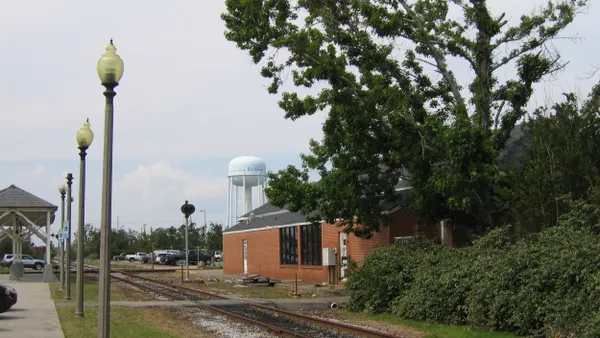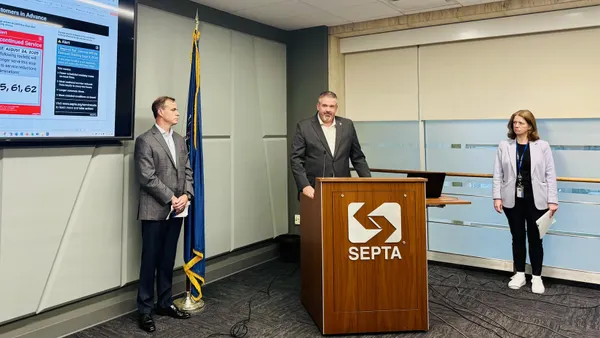Dive Brief:
- Following a trial period in October 2016, the first electric double-decker buses in the U.S. will hit Los Angeles County next year on a commuter line that runs to downtown Los Angeles.
- The Foothill Transit agency, which serves cities in the San Gabriel and Pomona Valleys, will introduce the two new electric buses on its Silver Streak route. The buses are built by Alexander Dennis, with the batteries provided by electric transportation company Proterra.
- "As congestion intensifies across Southern California, every inch of road space matters, so increasing passenger occupancy while maintaining comfort and a singular bus footprint is a public transit solution we’re really excited to introduce," said Foothill Transit Executive Director Doran Barnes in a statement.
Dive Insight:
In an interview with Smart Cities Dive, Foothill Transit Director of Maintenance and Vehicle Technology Roland Cordero said the agency’s 60-foot articulated buses are getting old. And with the capacity of 80 on a double-decker bus, rather than 58 people on a 60-footer and 38 on a regular bus, the new buses will boost comfort and efficiency.
"It has a really comfortable, plush, luxurious ride. It's not bouncy at all," he said. "Here we're experiencing some declines in ridership and I think providing a higher quality, more luxurious ride will entice people to take public transit."
The agency is also making this investment as part of a wider initiative to have a fully electric bus fleet by 2030, which includes a new long-range electric service by Proterra that launched late last year. "The Los Angeles Basin has one of the worst air qualities in California, so we're trying to help clean the air, provide a better service to our community, as well as looking at innovative ideas that would transform public transit," Cordero said.
The price may give other agencies some pause, as it costs $1.6 million per bus, which includes $300,000 for research and development that will be removed from the price tag once the design is finalized. That is compared to $1 million to replace an articulated bus, Cordero said, but he noted maintenance of electric buses is less expensive than of those with traditional internal combustion engines.
More transit agencies are looking toward electrification of their fleets, but this takes the initiative a step further by adding capacity, something that will be useful in the Los Angeles area and other cities as their populations expand and their leaders try to convince people to not use personal vehicles.










